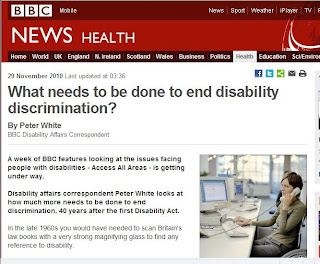 Equal Pay Day 2010
Equal Pay Day 2010 marks the day of the year when women in effect stop getting paid because of the pay gap between women and men of 16.4 per cent. 40 years after the
Equal Pay Act, an unprecedented coalition has come together to publish a new report identifying how to close the UK’s persistent gender pay gap once and for all.
The Fawcett Society, UNISON, the TUC and the Equality and Human Rights Commission have together produced ‘Equal Pay: Where Next?’, a report showcasing the latest thinking from business, unions, employers, policy makers, campaigners and more on how to close the pay gap between women and men once and for all, with key recommendations for government and others on tackling one of the largest inequalities still remaining between UK women and men. (1)
The reports advocates that action is needed in four key areas to have any real impact on the pay gap:
1) Debunking the myth that equal pay is bad for business, showing that, actually, equal pay ‘pays.’
2) Making equal pay law ‘fit for purpose’ – starting by implementing the 2010 Equality Act, with its measures to improve employer transparency on pay rates for women and men, in full.
3) Changing working practices to reflect the modern workforce and support families, for example, increasing flexible working and job shares.
4) Tackling outdated and stereotyped ideas about men and women’s roles – in particular through education.
Welcoming the report, Ceri Goddard, Chief Executive of the Fawcett Society, said:
“With job losses in the public sector and spending cuts already threatening women’s overall economic independence, robust action on equal pay is more not less important. Given the pay gap in the private sector is even wider than the public sector, it’s particularly key that government fully implement the Equality Act 2010. This will give them powers to require big business to measure and publish any gaps in their male and female pay rates if voluntary progress is not forthcoming. The Government must send a clear signal to all employers that unequal pay has no place in the 21st century workplace, whatever the economic context.”
Dave Prentis, General Secretary of Unison, said:
“It is an utter disgrace that women are still getting paid a significant amount less than men. The fear is that progress will be turned back, rather than built on, in the coming years. Drastic, ideologically motivated, public sector cuts are set to deal the biggest blow to women, who make more use of, and find more jobs in, the public sector. The government should be taking steps to give women their full protection – starting with overhauling the law. The time it takes for women to challenge unequal pay is a major hurdle. We have members who have sadly died in the time it takes to resolve an equal pay case. Allowing unions to take group action would also help more women challenge unfair pay.”
Sarah Veale CBE, Head of Equality and Employment Rights at the TUC, said:
“The recession forced many employers to rethink working practises in order to keep valuable staff. This flexibility needs to continue so that work can be remodelled to fit the skills of all workers, whatever their gender. The dearth of talented women in senior jobs and the endless gender pay gap is as much an economic failing as a social injustice.”
Source: The Fawcett Society: 2 November is Equal Pay Day.
The Fawcett Society is the UK’s leading campaign for equality between women and men. Where there's an inequality gap between women and men they are working to close it.
Looking for Equal Opportunities Training Equality Act Training Diversity Training? Then the website to visit is jml Training.com HERE












